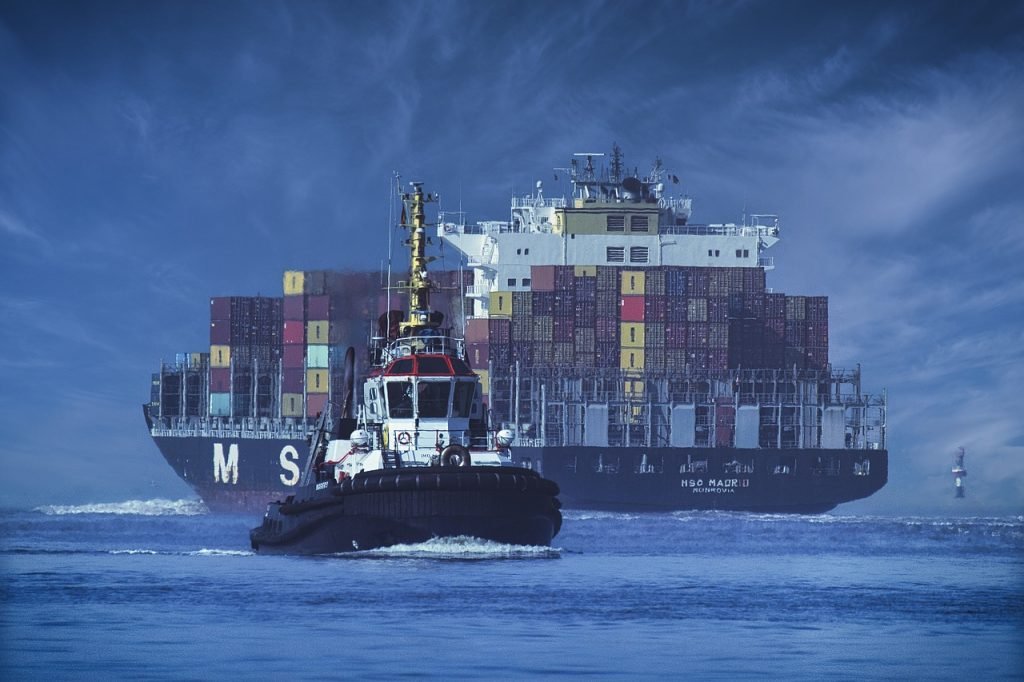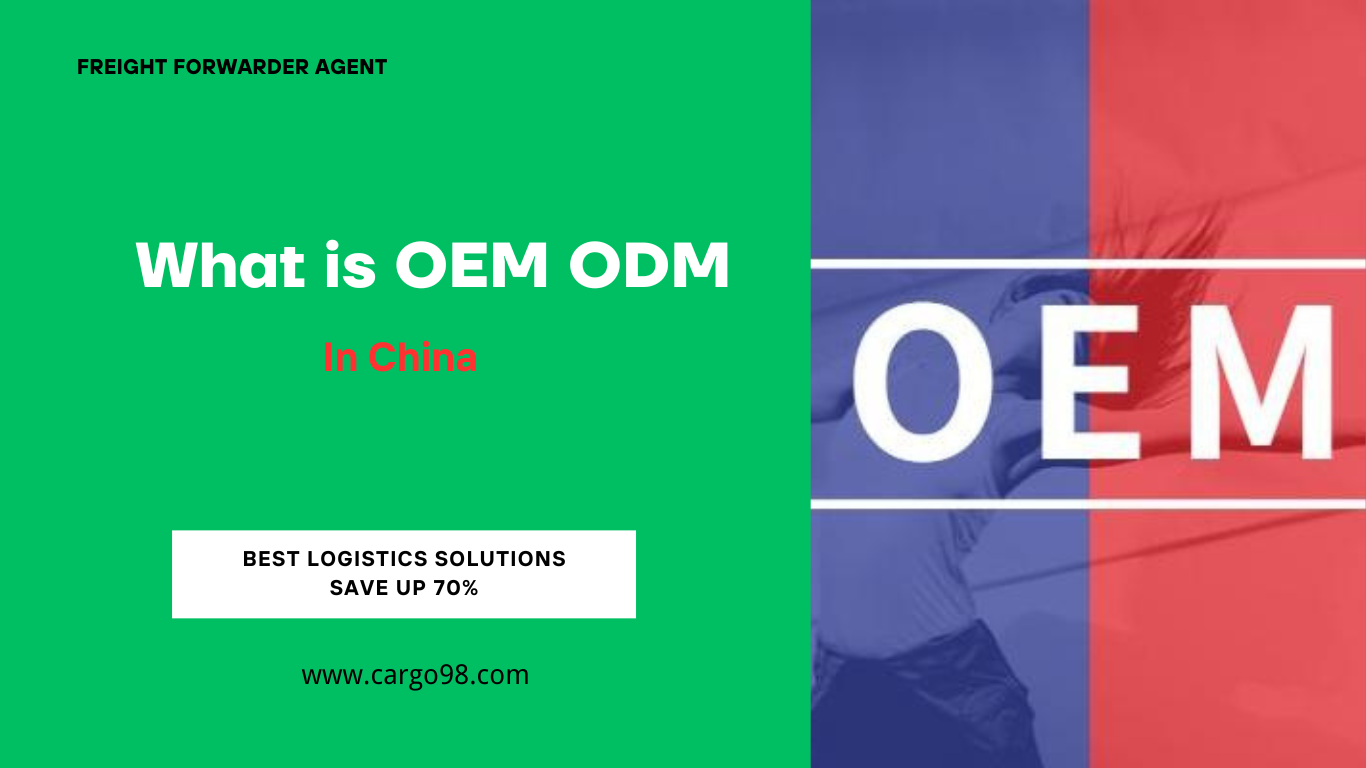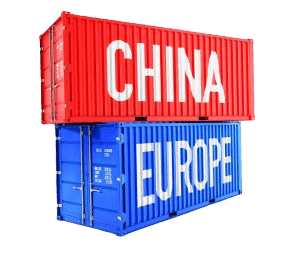How to deal with the issue of overweight containers
Container transportation is a collaborative process involving multiple departments, so in addition to the weight limit of the container itself, there are also some other factors that need to be considered.How to deal with the issue of overweight containers?
Container weight limit
There is information on the maximum weight limit on the opening door of each container, such as MAX GROSS: 30480KGS. The meaning is that your box with cargo cannot exceed this weight. Net weight -20GP: 2200KGS, 40: 3.720-4200KGS, some HQ may have MAX GROSS: 32000KGS.
This is the maximum strength that the container body can withstand. If the loading exceeds this limit, there may be deformation of the body, detachment of the bottom plate, bending of the top beam, and other damages. All losses resulting from this will be borne entirely by the loader. At present, most professional container terminals are equipped with automatic weighing scales, so as long as the container loading exceeds the weight limit of the container, the terminal will refuse to accept the container. So it is recommended to carefully check the weight limit on the container body to avoid unnecessary container return and reloading operations.
If the goods are indeed overweight and cannot be divided, then an overweight box can be chosen. Here, there will be an additional weight selection fee. Generally, the dock/yard will stack the shipping company’s ordinary dry containers together. If you want to choose a special weight container (such as the 20 weight containers mentioned earlier), the dock/yard must search for each one, and the resulting container selection fee is generally the same as the specified container fee.

How to deal with the issue of overweight containers
Shipping company weight limit
Generally, the weight policy of each shipping company is different, and the standard is not to damage the container.
Considering the balance between cabin space and weight. Each container ship has certain cabin and weight limitations, but on a specific route, the cabin and weight are not always just balanced out. Contradictions often occur in the northern regions of China, where heavy cargo is concentrated. When the weight of a ship has arrived and there are still many fewer seats, shipping companies often adopt a price increase strategy to make up for this loss of space.
That is, when the weight of the cargo exceeds a certain number of tons, additional shipping fees are charged. Some shipping companies do not use their own ships, but buy cabins from other shipping companies for transportation. The weight restrictions will be stricter because the buying and selling of cabins between shipping companies is calculated based on the standard of 1TEU=14TONS or 16TONS, and those exceeding the weight will not be allowed to board the ship.
During the period of cabin explosion, depending on the heat of the route, the shipping company will correspondingly lower the weight limit for each type of container.
When booking, it is necessary to inquire with the freight forwarder about the weight limit of the shipping company at the latest when shipping. If there is no confirmation and the goods are heavy, there is a risk. Some shipping companies, after being overweight, do not have any room for communication and directly ask the shipper to tow, ship out, pick up the goods and weigh them again. These costs are difficult to control.
Terminal weight limit
Mainly looking at the mechanical equipment load of the dock and yard.
After a container ship docks at the dock, it usually requires a crane at the dock for loading and unloading operations, and then it is towed by truck to the container yard and lifted down by a forklift. If the weight of the container exceeds the mechanical load, it will cause difficulties for the operation of the port and yard. Therefore, for some small ports with relatively outdated equipment, shipping companies generally inform the port’s weight limit in advance, and those exceeding this limit will not be charged.

Supporting branch ships or road weight limits
The weight limit for road transportation in the United States is very strict because many containers need to be towed inland by truck after unloading at the port. Therefore, road weight limit is also a reason for shipping companies to limit container weight. Of course, only internal transportation at the port is not subject to this limit.
The weight requirements for goods transported to the United States are very strict, and the weight limit is mainly affected by the weight limit of the road to the inland points of the United States. Generally, small containers weigh 17.3 tons and large high containers weigh 19.5 tons. However, different ports also have different weight limit requirements.
Shipping route weight limit
The shipping capacity of different shipping routes is arranged by the shipping company according to the order of cargo loading and unloading at the port, as well as the types and heat of cargo exports. In addition, due to the load problem of equipment operation at the destination port, the weight limit of containers of different sizes on different routes naturally varies.
What should I do if I’m overweight?
This is mainly divided into overweight in port areas, overweight in shipping companies, and overweight in destination ports.
- Shipping companies are overweight
Discuss with the shipowner to make up for the overweight fee, and follow normal procedures for others;
- The port area has its own regulations for overweight
If overweight is found upon arrival at the port, it is necessary to negotiate with the port area, pay the overweight fee plus manual handling fee, or unload and reload the container;
- Overweight at destination port
If the destination port is overweight within a certain range, paying a fine can solve the problem; If the weight is severe, the crane along the way cannot bear the load and can only be unloaded at nearby ports or returned along the same route.
RJ Logistic container transportation service:
Provide quotation services for FCL, LCL, special containers, and SOC containers.
With RJ logistics,The preferential price you can get is 80%-90% discount from the official quotation of DHL and FEDEX, UPS, EMS.
The Ultimate Guide to Amazon FBA Sourcing Agent Service: Do You Really Need It?
Amazon FBA Sourcing Agent Service
what strategy would most help an ecommerce business drive traffic to their website
what strategy would most help an ecommerce business drive traffic to their website







